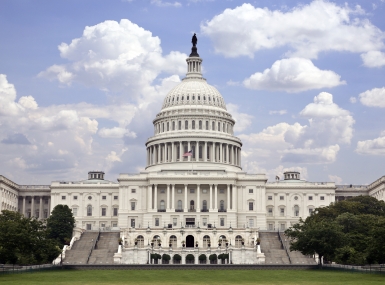Restore the Balance of Federalism and Optimize Intergovernmental Partnerships

Author

Paige Mellerio
Upcoming Events
Related News
Action Needed
Urge your Members of Congress to reintroduce and pass the Restore the Partnership Act and the Unfunded Mandates Accounting and Transparency Act in the 119th Congress. These bills will increase transparency and reduce the regulatory burden of unfunded federal mandates on the public, foster intergovernmental dialogue and unite all levels of government in supporting our system in federalism.
Background
America’s system of federalism divides governing responsibilities between the federal government and state and local governments. While there is a clear distinction and separation of powers and duties among these levels of government, we often work together to achieve public policy outcomes that best serve the American public.
From 1959-1996, the Advisory Council on Intergovernmental Relations (ACIR) served as the preeminent bipartisan, independent organization promoting strong intergovernmental relations. ACIR produced high-quality information, data and analyses, including over 130 policy reports with action recommendations, 194 information reports and about 80 issues of a magazine titled, “Intergovernmental Perspective”. ACIR also helped develop congressional legislation related to improving the administration of federal grants and served as a valuable advisor to presidents, state leaders and local elected officials.
Counties are responsible for a wide range of issues, including public infrastructure, transportation, healthcare, economic development, criminal justice and law enforcement, and many others.
While some of these responsibilities are unique to counties, in many cases we work with our state and federal partners to achieve optimal solutions. We often serve as co-regulators with our state and federal counterparts. While policies and programs established by the federal government are intended to guide and coordinate efforts, they are ultimately implemented at the state and local levels.
Counties are also dealing with the heavy burden of unfunded federal mandates. When the cost of unfunded mandates outweighs available funds at the local level, counties often must make difficult budget choices on services needed for their community. To ensure the wellbeing of our communities, NACo calls on Congress to require federal agencies to engage with state and local governments often, and as early as possible, when considering proposed and pending mandates that have a direct impact on state and local governments.
In the 118th Congress, Reps. Gerry Connolly (D-Va.) and Marc Molinaro (R-N.Y.) introduced the bipartisan Restore the Partnership Act to reconstitute and reform the U.S. Advisory Council on Intergovernmental Relations (ACIR). The purpose of this new commission, the Commission on Intergovernmental Relations of the United States, would be to facilitate cooperation and accountability among federal, state, tribal and local governments. The new commission would include four seats for county elected officials.
On January 21, Rep. Virginia Doc (R-N.C.) introduced the Unfunded Mandates Accountability and Transparency Act, which would update the Unfunded Mandates Reform Act (UMRA). While UMRA still serves as a guiding principle for new legislation, over time Congress has found ways to circumvent the law and federal agencies have unevenly applied federalism consultation protocols in the rulemaking process. Passing the Unfunded Mandates Accountability and Transparency Act would address both issues and further strengthen intergovernmental collaboration and the quality of laws and regulations approved by the federal government. Counties urge Congress to pass these bills in the 119th Congress.
Key Talking Points
- Federalism is an important feature of our governmental system, and it is important that all levels of government work together to solve our shared problems and one level of government foes not overwhelm the others
- Reconstituting the Advisory Council on Intergovernmental Affairs (ACIR) would establish a national commission focused on how governments interact as well as areas of potential improvement and examples of successful collaboration
- The bipartisan Restore the Partnership Act takes an important step in re-establishing a comprehensive approach to evaluating impacts of legislation and regulation on state and local governments
Related News

County Countdown – Dec. 15, 2025
Every other week, NACo's County Countdown reviews top federal policy advocacy items with an eye towards counties and the intergovernmental partnership.

U.S. Congress passes reconciliation bill: What it means for counties
On July 3, the U.S. Congress passed sweeping budget reconciliation legislation.

U.S. Senate passes amended reconciliation bill text: What it means for counties
On July 1, the U.S. Senate narrowly passed their version of sweeping budget reconciliation legislation.